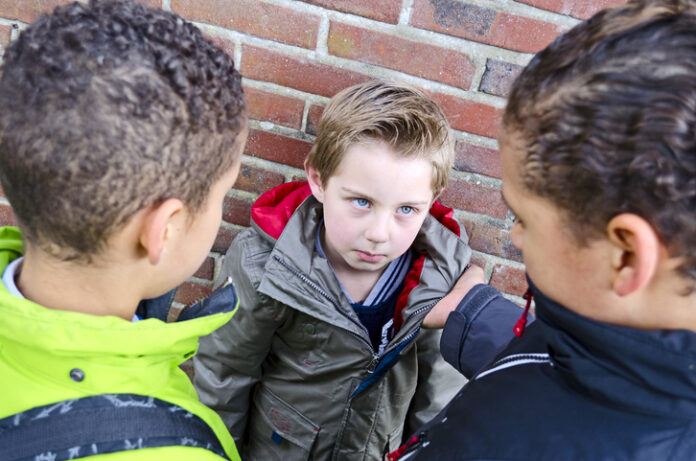Wisconsin elementary school student attacked by high schoolers, but no one called the police and no one was charged.
By Eileen Griffin
A 10-year-old boy was physically attacked by a group of high school students inside a Milwaukee elementary school.
At Hartford Avenue University Elementary School in Milwaukee, Wisconsin, a group of high school students attacked a fourth-grade student in the elementary school stairwell, WISN reports.
The mother of the victim spoke to WISN using a pseudonym, Miss Evans, to protect her privacy. She questioned how the students were allowed access to the elementary school.
“They went to my son’s class, were able to take him out of the classroom, lead him down the hallway into a stairwell, hold him against his will, and allow another student to punch him multiple times in the face, causing a concussion,” Evans said.
The school did not notify the police, so Evans did. School administrators are also in possession of a video documenting the attack, but will not allow Evans to view it.
“When I came up here and requested to see it, they told me I did not have the right to see what happened to my son,” Evans told WISN.
Teachers have been leaving Wisconsin schools in record numbers, WKOW reports. A report released in April showed 40 percent of Wisconsin teachers leave within their first six years on the job.
The education establishment frequently claims problems would be solved if only more money were allocated to the taxpayer-funded school system and teacher pay was increased.
Some teachers deserve more, but many are well paid considering the full compensation package and compared to similarly skilled private sector workers, writes Larry Sand, president of the California Teachers Empowerment Network, for For Kids and Country.
“Overall, with various perks included, a teacher makes an average of $68.85 per hour, whereas a private sector worker makes about $40 per hour,” Sand writes.
Former teacher and education freedom advocate Rebecca Friedrichs previously told Heartland Daily News the problem with the teaching profession is that it has become more dangerous as the discipline policies have become very lenient.
“It’s too dangerous to be a teacher,” Friedrichs said. “These school districts, shame on them, shame on superintendents who are doing this, taking chunks of money (from the federal government) and then following these disastrous policies that are creating war zones in our schools, making children and teachers and parents unsafe, and undermining the learning environment, and they’re doing it all for money.”
Youth violence is not new, Manhattan Institute scholar Rafael Mangual told Heartland Daily News. What is new is the lack of discipline or consequences for such behavior.
“It’s important not to accept that what we are seeing is a new phenomenon,” Mangual said. “Juvenile offenders have always been a problem, but we are seeing it now because of the phones. And that may be a contributor as well. They get online clout with the videos.”
“What has changed is the criminal justice response,” Mangual said. “In recent years there has been a policy push to allow only minor consequences for juvenile offenders.”
“In places like Chicago or New York, they are raising the age to transfer to adult court, even for serious offenses like carjacking or gun offenses. The broader push against incarceration has impacted youth offenders as well.”
Without consequences, children will continue to act violently and commit crimes, just as many cities have seen in the adult population, says Mangual.
“It’s just part of the broader crime spike in the country,” Mangual said.
Soft-on-crime policies and Leftist district attorneys have left a trail of victims as Heartland Daily News has previously reported. In Chicago, the 2023 SAFE-T Act eliminated bail for most offenders. Criminals are free to continue their crime spree while awaiting trial.
Seattle decriminalized most drug crimes, creating a safe haven for drug addicts and criminals and, in New York City, the defund the police movement has given criminals more opportunities with the reduced risk of arrest.
“We have lowered the transactional cost of the behavior,” Mangual says. “We are failing to disincentivize the behavior. The disincentives have eroded.”
Youth are particularly impacted by policies that do not discourage anti-social behavior or punish violent acts.
“Violence is a young man’s game,” Mangual says. “Really violent actors tend to be really violent.”
Milwaukee police will not confirm that anyone has been charged with a crime after the vicious attack on the 10-year-old boy.
For more great content from School Reform News.








